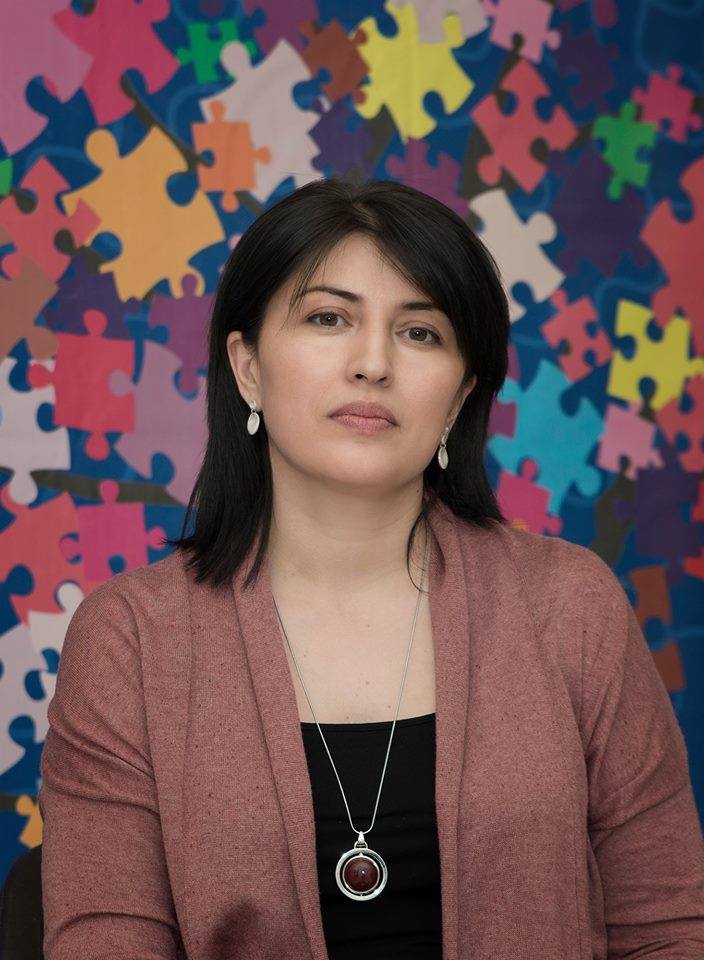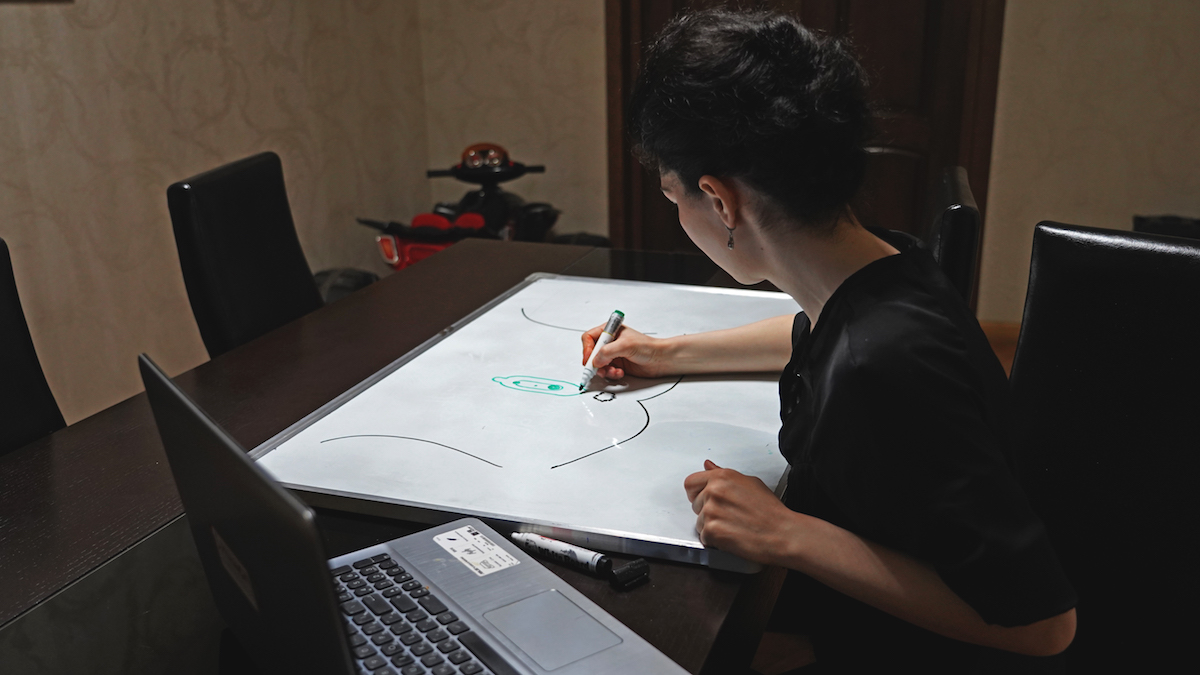Sex education in Georgia – desperately needed, ferociously opposed
“Our ancestors did not study this. Did they not give birth to children?!”
This is one of the most common arguments used by opponents of sex education in Georgia.
It is difficult to say to what extent Georgian adolescents know about sexual health, but experts often say that this knowledge is scarce and often extremely dubious.
In Georgia, attempts to raise this issue on a public tribune have always resulted in failure. For many years, the position of the church, which equates sexual enlightenment to debauchery, has remain unchanged – and this is the most respected institution by the population, which is trusted by the overwhelming majority.
Accordingly, the authorities have two options – to make the ‘unpopular decision’ and lose a segment of their voters, or to cozy up to the church in exchange for its loyalty.
Generally, the government has chosen the second option.
To give adolescents answers to sexual issues, the Ministry of Education tries to deliver some information during biology lessons, calling it “reproductive health”.

Have you learnt anything else?
Thirty-nine-year-old Diana Balesiashvili, the mother of two children aged three and nine, does not support the idea of sex education in schools.
“At school age, especially in the lower grades, this cannot be studied, since the children will then have a craving for an even greater ‘awareness’. And a child should remain a child. It would be better to introduce lessons of religion into the school curriculum, which will teach you love for your neighbour and inspire fear of the Almighty,” she says.
Diana believes that children should receive information about sexual safety from their parents.
“I will do it myself when I see fit. Parents know the minds of their own children better and have a better idea when the child will be ready to discuss the topic,” says Diana.
Gulo Putkaradze, a 38-year-old mother of two children, says open conversations about sexual health should not be had in classes where both boys and girls are present at the same time, and that these questions are better for parents.
“The child’s questions can be answered by a mother if it’s about a girl, or a father if it’s about a boy. Nobody knows better than the parents on how to present their children with certain topics,” she says.
Twenty-seven-year-old Nanuka Shikhashvili says that she did not receive any sex education at school and that she did not experience any problems as a result of this in her own life.
“I did not study it at school, and believe me, I never had any problems. I married, as was expected, and gave birth to three children. I didn’t feel like I had a lack of knowledge. We didn’t have this subject in school. Did something bad happen to me? No, because I only had a relationship with one man — my husband,” she says.
Sex-ed – a health and safety issue
Nevertheless, there are quite a few supporters of sex education lessons among Georgian parents.
Mariam Zuliashvili says she will casually ‘slip’ the relevant literature to her child when he grows up. Now he is one year and eight months old.
“It is better for the child to understand from our presentation what the body is, to recognize the difference between the sexes etc than for them to just scoop up some information from dubious sources. I am sure that appropriate sex education will prevent such early pregnancies and abortions that are frequent in our lives and the spread of sexually transmitted diseases, because adolescents will have information on how to avoid all these troubles,” says Mariam.
Nino Gugeshashvili, a 32-year-old mother of three children, believes that children between the ages of seven and eight should receive safety information – for example, about who you can trust.
“Many nine and ten-year-old girls begin to menstruate, but often parents cannot correctly explain what’s happening to them. Girls are embarrassed by menstruation, considering it something shameful, buying pads for themselves in secret. This is a serious problem. I believe that education in this area is necessary. Naturally, information should be given in accordance with the age of the child, and this should be done by professionals,” she says.
However, against the backdrop of the apparent decline of secondary education in Georgia, sex education advocates have fair doubts about the qualifications of teachers who can talk to teenagers about sex.
“Today, even the ‘traditional’ lessons of mathematics or drawing are normally difficult to conduct. Often the teacher does not have the respect of the children in the classroom, who in turn fool around without doing anything. Therefore, lessons in sex education could just look ridiculous,” shares 46-year-old Natia Tarashvili, the mother of three children.
A psychologist’s opinion

Psychologist Nata Meparishvili, a professor at Ilia State University in Tbilisi, works with adolescents and says that nowadays teenagers or children may have sex without even fully understanding what sexual activity is, and what its effects can be – both physiological and psychological.
“If it is considered necessary for children to know about the digestive system, the respiratory tract and organs of vision, then why should they not be aware of the genitals and the process of childbearing?” says the professor.
“It is extremely important that girls be protected, and not have to have an abortion at 15 or become a mother at 16.”
Meparishvili says that at the start of sexual activity, you need to clearly inform the teenager about how to protect themselves and make sure they know what safe sex is.
At a younger age, it’s enough for a child to identify parts of their body, to know what they are called, and most importantly, not to allow anyone to violate the boundaries of their personal space.
“A child must clearly understand that outsiders cannot touch their intimate places,” explains Nata Meparishvili. Understanding sexual abuse is an important part of sex education, she says.
Getting information to a teenager who has questions about sex is not easy.
Parents are too shy to speak to them and there are few qualified teachers, it is practically impossible to find literature in which answers to questions about sex could be found in Georgia.
“This can then lead to stress, fears and inability to choose a partner in the future,” Meparishvili says.
She also spoke about a “tradition” still accepted in some circles in Georgia, when a teenage boy is referred to sex workers by a close relative or family friend.
“This happens usually at the age of 13-14, when a child is completely unprepared for it. He is led to a sex worker, and then they even wait for the story of how it all went. I have had cases when teenagers who experienced stress in such conditions turned to psychologists for help,” Meparishvili says.
Meparishvili says there are resources in the country that professionals can use to create literature that will be of help to both children and their parents.
Threats over attempts to educate
Khatia Akhalaia’s experience as a sex-ed instructor shows just how dangerous and fraught with controversy the issue is in Georgia.
She began recording video lessons on sex-ed and uploading them onto the internet: she was immediately attacked, especially by members of far-right groups. She has been threatened with torture, rape and even violence against her children.

Khatia says that the organization for which she works, the Association for Education and Labour, conducted a study in Tbilisi schools a few years ago to find out just how aware young people are of sex, alcohol, tobacco, sexually transmitted diseases, early marriage and violence. It turned out that the level of awareness is very low, and the knowledge of these issues is flawed.
Later, the organization began to conduct workshops on these topics for adolescents over 12 years of age with their parents. Then she recorded video tutorials for a wider audience.
These lessons are prepared by Khatia Akhalaia together with her colleagues. After selecting a topic, she consults with experts in the relevant field, and then records the video at home or in the office.
Because of these video tutorials, she had to radically change her lifestyle – she can no longer use public transport, and does not go out after dark. Those who have threatened her know the address of her home, office, and even the kindergarten of her child.
An investigation into her case is ongoing, despite the fact that the police already know perfectly well who exactly has threatened her. Nobody has yet been brought to justice yet. Khatia says that in acting in such a manner, the state is actually encouraging violence.

Akhalaia demands not only that these people threatening her and her child be punished – but that the state offer adolescents instruction in sex education. Khatia says that she understands what a difficult struggle she has gotten into, but that she is not going to stop because she is convinced that she is engaged in useful and necessary work.
“I have no illusions about the fact that my videos will solve the problem, or that sexual violence will be eradicated, or that early marriages will stop, and girls will no longer experience discomfort due to menstruation. Solving these problems requires an integrated approach, first of all, the participation of the state and the inclusion of the necessary discipline in the national curriculum,” Khatia said.
Reproductive health
After the Akhalaia case, Sofia Kiladze, chairperson of the parliamentary committee on human rights, came up with the idea to introduce a provision in the children’s rights code, according to which a child can receive sex education only with parental consent.
Sofia Kiladze explains her proposal by the need to stop possible attempts by “any non-governmental organizations” to include such lessons in the programme of non-formal education.
Kiladze also considers it necessary to involve clergymen in such lessons – but “only in crisis cases” and at the request of parents.
The state recognizes the existence of the problem, but at the same time opposes the introduction of a special discipline into the curriculum. Moreover, the Ministry of Education in this context does not use the terms “sexual” at all, replacing it with the term “reproductive health”.
A new national curriculum involves giving information on the following topics to schoolchildren from 7-10th grade on puberty: Physical changes, the menstrual cycle, the reproductive system of women and men, fertility, sexually transmitted diseases, early marriage, pregnancy and abortion. The new programme will be launched in stages from September this year – these topics will be studied in biology lessons.
Experts say that the curriculum is adequate, but that teachers need to be retrained. The Ministry of Education recognizes that teachers often try to “skip” these “uncomfortable topics”.
“When the teacher is self-confident and does not feel awkward, then there are no problems in the classes. We conducted pilot lessons and we can say that eighth and ninth-graders are quite calm about such issues. The problem is often the teacher, who avoids the topic themselves,” says the head of the Department of National Curricula at the Ministry of Education, Manana Varazashvili.
However, Varazashvili says, the situation is improving, and more and more teachers are undergoing retraining.
Statistics
Over the past three years, the Georgian Centre for Disease Control recorded the following data on early pregnancies and abortions:
• in 2017 – 813 early pregnancies, 103 abortions;
• in 2018 – 675 early pregnancies, 78 abortions;
• in 2019 (preliminary data) – 261 early pregnancies, 27 abortions.
The centre says that sexually transmitted diseases are common in adolescents under the age of 14, including cases of syphilis.


















